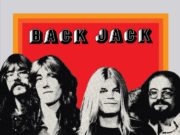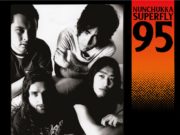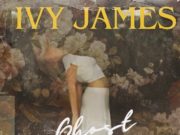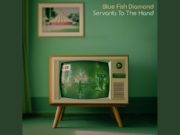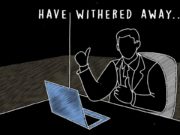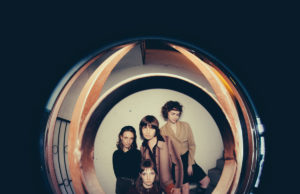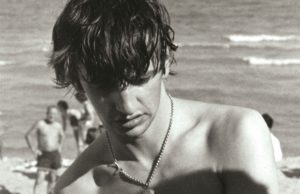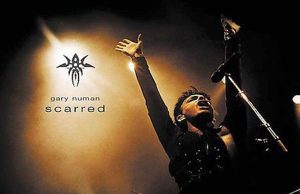 If you were to encounter my partner in traffic, you’d likely hear her before you spot her vehicle. These days, the song at the top of this column is what you’re likely to hear.
If you were to encounter my partner in traffic, you’d likely hear her before you spot her vehicle. These days, the song at the top of this column is what you’re likely to hear.
Sugar Mama is delightfully filthy. My partner has been through some pretty awful stuff with dudes and finds sexually explicit female-empowerment hip-hop extremely therapeutic. She makes no bones about it. Other tracks like this she’s exposed me to include WAP by Cardi B and especially Magic Stick by Lil’ Kim. It’s now normal and mainstream for female artists to put this out. There’s a whole hope chest of things women have been denied — but can now just have. My partner sums it up by saying “there’s horny, farty girls out there, too.”
We were talking about how this isn’t just liberating for her, but for all women. There was a time, not long ago, when performers like Dua Saleh would have been singing about, saving her love, finding Mr. Right and settling down — as opposed to getting it on with the older lady next door.
“Spread them legs like butter
Squirting from your utters
Creaming extra heavy
Cause my head game extra gutter.”
Isn’t it wonderful that women can sing and rap this kind of stuff now and nobody bats an eye. Society’s expectations of what women want and what they’re allowed to express is changing. Not fast enough, but tracks like these are encouraging. This kind of stuff doesn’t happen organically, it takes pioneers. Brave trailblazers who paved the way for these women, and often paid the price for it.
A classic example is Betty Davis, whose remastered 1973 debut album I just picked up last week. Davis (nee Betty Mabry) was a model and singer who was in a relationship with Hugh Maskela and then married to Miles Davis after they met in 1968. Their union only lasted a year — she was too wild for Miles, who was 19 years older. The lasting evidence of their marriage is her face gracing the cover of his 1968 album Filles de Kilimanjaro.
There was a brief union with Eric Clapton, who she refused to record with. Betty seemed to get along better with her next famous ’70s musician beau, Robert Palmer, who managed to do something Miles couldn’t — get her a record deal. In 1979, Betty signed with Island Records and issued her third album, Nasty Gal. The previous two — Betty Davis (1973) and They Say I’m Different (1974) were issued on the short-lived Just Sunshine label. Both are great, but that first album is a stunner. Davis made it after returning to L.A. from the U.K., where she’d been modelling. Her loose plan was making a record with members of Santana. Instead, she cut the record with Sly Stone’s band — including his drummer Greg Errico, who produced it — and Tower of Power horns. The opening track, If I’m In Luck I Might Get Picked Up, was released as a single but the album — all three albums — flopped.
Davis dressed not entirely differently from David Bowie, but her style and her sexually explicit lyrics got her barred and banned from venues, TV shows and radio stations across the U.S. She was a cult figure both during her peak and her later years when a documentary film about her sparked new interest in her music and her unapologetic, aggressive approach. Carlos Santana called her “Indomitable. She couldn’t be tamed. Musically, philosophically and physically, she was extreme and attractive.”
After she got dumped by Island Records, Davis moved to Japan and spent a year with silent monks. When that 2017 documentary was being made, the director managed to track Davis down and found her living on the bare essentials — no car, no cellphone and living in the basement of somebody’s house. She died of cancer last year at age 77.
This desire for silence and just generally being “over people” played out in the life of Plasmatics lead singer Wendy O. Williams — another fierce pioneer who paved the way for the uninhibited ladies of today. Williams once described herself as “a marginal nymphomaniac and terminal exhibitionist.”
She was known to perform in various states of nudity, fire guns on stage, blow up amplifiers and cut guitars up with a chainsaw. Her story is both amazing and tragic. Williams was actually on the Howdy Doody Show as a kid — appearing once as a tapdancing member of The Peanut Gallery. She got pinched by the cops for nude sunbathing at age 15 in her hometown in the Finger Lakes region of New York State. She left home at 16, hitchhiked across the States earning money by crocheting bikinis and managed to get enough cash to go to Europe, where she worked as a cook, a stripper, a lifeguard and a Dunkin’ Donuts server. When she got back to the States in 1976, she did live sex shows in N.Y.C. and made a porn film a few years later.
Williams was recruited into the newly formed punk band Plasmatics in 1977. My first exposure to her — age 8 — was Oct. 23, 1981 when the band appeared on the recurring SCTV segment The Fishin’ Musician with Gil Fisher (John Candy).
For the shoot, Williams was asked to wear a different outfit — one which didn’t reveal her nipples. She refused, so SCTV production staff painted her breasts black.
Williams left the band two years later for a solo career before rejoining Plasmatics for a three-year reunion in the late ’80s. Then she left the business and worked as an animal rehabilitator, claiming she was fed up dealing with humans. She dealt with depression and attempted suicide twice before dying of a self-inflicted gunshot wound in April 1998. Her former manager and partner for two decades found her in the woods after reading her suicide note. She had been feeding squirrels.
Russian pop duo t.A.T.u were as known for their overt same-sex attraction as they were for their music. It seems to have been on the minds of the producers who put the duo together and named them. Tatu is a play on the Russian phrase “Та ту”, meaning “this girl loves that girl.” When the pair made their first English-language album in Oct. 2002, the first single All The Things She Said, was an international smash. The video, meanwhile, caused international controversy because the 17-year-old singers were shown kissing behind a fence. They got tagged as pedophile pop at a time when society was still clearly uncomfortable with openly LGBT couples.
NBC forbid them from kissing or talking about the Iraq war, but the young women — Lena Katina and Julia Volkova — instead wore T-shirts with “Fuck The War” written on the front in Russian. Maybe not my kind of music, but this is trailblazing I’m delighted to get behind.
I once attended a rally outside the Russian embassy in Ottawa for another group of Russian musicians — Pussy Riot. The feminist/protest punk group was actually around a dozen people. They would do pop-up gigs in public places around Moscow, doing punk songs calling out Russia’s anti-LGBT stance and Vladimir Putin’s policies. Three of them were arrested for hooliganism after one such pop-up in 2002 at an Orthodox church. I believe this was the reason for the rally I attended, as a journalist.
Punk/electroclash singer Peaches made waves in the early 2000s as well. Born in Toronto in 1966 as Merrill Nisker, she put out one album — Fancypants Hoodlum — under her own name, with her backing band The Shit. She emigrated to Germany and put out her second album The Teaches of Peaches as Peaches, followed two years later by Fatherfucker, which was my introduction. Her breakthrough song on that first Peaches album, Fuck The Pain Away, brought her much attention and spread loads of influence due to her gender ambiguity and challenging of traditional gender roles.
She also rocked.
One great example of women knocking one out of the park for all women, is the 2014 track Love Again by Run The Jewels, from their second album. Run The Jewels are a hip-hop duo consisting of El-P and Killer Mike. Both dudes, but on this they’re joined by Lola Mitchell, aka Gangsta Boo. The first few verses are intended to be shocking objectification of women. It leads to a chorus of “she got that dick in her mouth all day.”
But then it’s Boo’s turn. FTW:
“That’s what you want, huh?
Well, let me tell you a little story
I was the one who turned that boy into a motherfuckin’ man
His tongue is bomb, and he love for me to ride his face
Front to back, grippin’ ass
Pay my bills, where I live, fuck me good
Broke ass niggas killin’ me, I’m about my money, ho
Never been a square bitch, he ain’t payin’? Hit the fuckin’ door
Talkin’ slick, that Memphis shit, I be from that Haven clique
Keep it ratchet, so sweet, all these boys kiss my feet
I be on that queen shit, you better bless my realness
Stick your tongue up in my ass
You better show me who you fuckin’ with
Run The Jewels, love again, you gon’ lose, I’m gon’ win
Let’s have an orgy, I’ma share your ass with all my friends (yeah, ho!)
He want this clit in his mouth all day
He want this clit in his mouth all day (yeah, ho)
I put my clit in his mouth all day.”
I remember there being controversy surrounding Carole Pope when High School Confidential was a hit in 1981. I would have been eight years old and my brothers wouldn’t tell me what the deal was. All I knew is the song had the word “screwing” in it, which meant sex. Someone at school told me Pope was actually a man, and that was the spicy thing about the band. Not true obviously, but it gave the lyrics the edge they were intended. Pope and Kevan Staples had been doing Rough Trade since the late ’60s and this was finally their breakthrough. A pioneer in LGBT activism, Pope was wearing bondage attire and singing about sex with women decades before Katy Perry.
I recently picked up two incredible compilations called Copulatin’ Blues (Vol I and II). These were put together in 1976 and feature some of the speakeasy classics of the 1920s to the 1940s. This is an album of songs by black musicians that are not about equality or the usual blues themes, they’re about sex: “The one area of black life where whites had no authority,” according to the backgrounder liner notes. These albums are must-hear records. This one is on Vol. 1:
Kinda even puts Moi Je T’aime… Moi Non Plus by Serge Gainsbourg and Jane Birkin to shame. I once heard this in a Presse Café coffee shop and laughed out loud. Eggwich and an orgasm, please.
And if you like orgasms in your songs, make sure to add Jungle Fever by Chakachas (1972), Love Won’t Let Me Wait by Major Harris (1975) and ♾️ (Infinity) by Aphrodite’s Child (1972).
Orson Welles once called Eartha Kitt the most exciting woman in the world — she was Catwoman, after all. Known for Santa Baby, she spoke four languages and sang in 11. She also spoke her mind. At an invitational dinner at The White House she told then-First Lady Lady Bird Johnson how she really felt about the Vietnam War: “You send the best of this country off to be shot and maimed. No wonder the kids rebel and take pot.” She made the first lady cry, essentially ending her career in North America. The CIA branded her a “sadistic nymphomaniac.”
I can’t do this column without mentioning Madonna and Marilyn Monroe, two brilliant women who demonstrated how to use their sexuality in a way so powerful, that society’s entitled sexist women objectifiers were completely disarmed.
I know I’ve left so many out, so here’s a playlist of brilliant, raunchy and filthy ladies who have made, and are making, the world a better place for the next generation of artists. So nobody ever has to sing another song about saving themselves for a nice man.
• • •
Area Resident is an Ottawa-based journalist, recording artist, music collector and re-seller. Hear (and buy) his music on Bandcamp, email him HERE, follow him on Instagram and check him out on Discogs.


